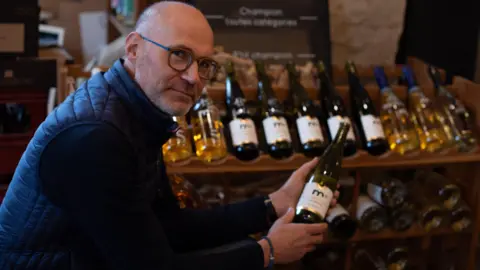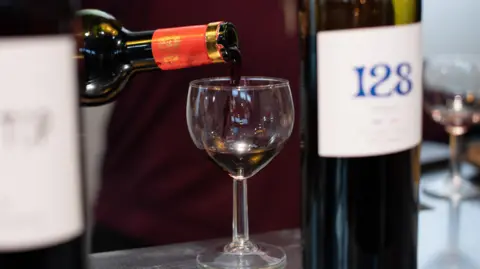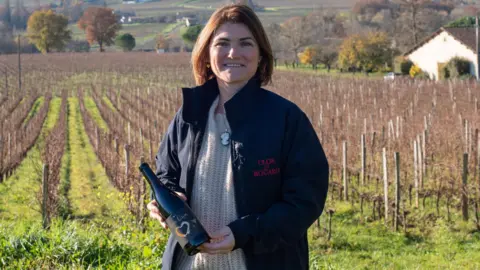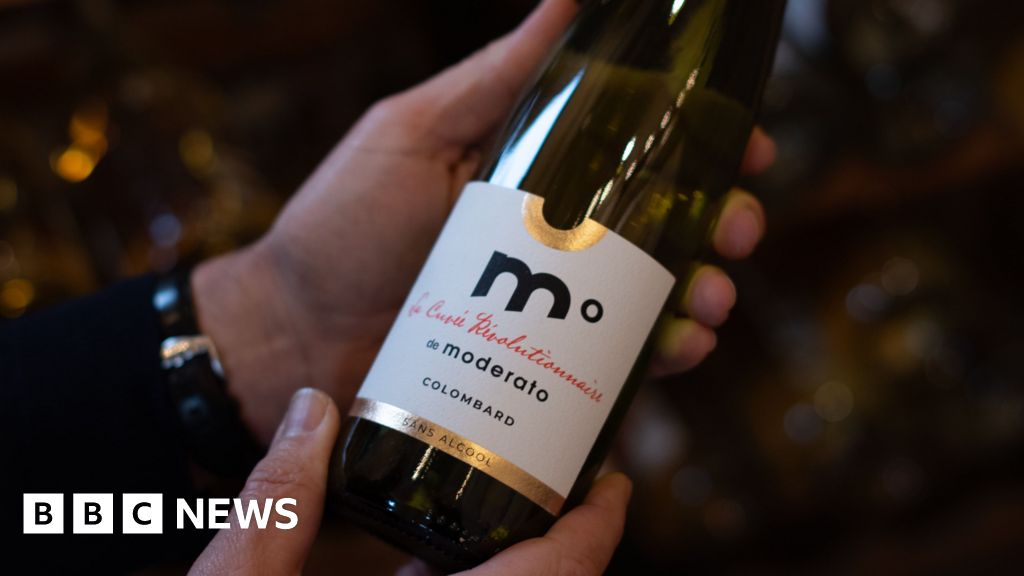 BBC
BBCIn the vineyards of Bordeaux, the unspeakable has become drinkable. Wine without alcohol has arrived.
Yesterday’s heresy is now – thanks to science and economic crisis – today’s opportunity.
Wineries that would have burned their grapes rather than submit to such infamy are now openly considering the alcohol-free bottle.
And developers are moving forward quickly, creating wines that are deliberately designed to get the most out of the dealcoholization process.
“When we started a few years ago, what we were doing was, quite frankly, rubbish,” says Bordeaux oenologist Frédéric Brochet, who helped create Moderato’s range of alcohol-free wines.
“But we have made great progress. And today we are getting closer and closer to our goal. I think it will be a revolution in the wine world.”
Bordeaux has just seen the launch of its first ever cave – wine shop – dedicated exclusively to alcohol-free wines, reflecting a shift in perception that has surprised many in the industry.
“We only opened four weeks ago and already we’re getting vintners from the area coming in and asking about the alcohol-free market,” says Alexandre Kettaneh, who owns Les Belles Grappes with his wife Anne.
“They don’t know how to do it, but they see it coming and want to be a part of it.”
Several things have happened to make the moment opportune.
First of all, the French wine world is in deep trouble. Domestic consumption continues to decline and the Chinese market is not what it used to be. The incoming US president, Donald Trump, is threatening new taxes. Older old vineyards throughout France are being cleared.
Secondly, consumption habits are changing, especially among young people. Supermarkets now give more space to beer than they do to wine. Most 20-year-olds have never had the habit of drinking – and they are also far more health-conscious than their elders.
The alcohol-free lifestyle is spreading. Currently, 10% of the French beer market is non-alcoholic. In Spain it is 25%.
And thirdly – technology has improved by leaps and bounds.

In the past – and still today for cheaper brands – the method has simply been to boil away the alcohol and then add compensating flavours. The result – especially for reds – is mediocre at best. Such drinks cannot even be called wine, but “drinks based on non-alcoholic wine”.
But now there are new methods of low-temperature vacuum distillation and of “capturing” aromas to put back into the de-alcoholized wine. The result is wines that can legitimately be called wines, and which are beginning to hold their own among discerning consumers.
“With reds, you have to be prepared for an experience that won’t be the same as a traditional wine with alcohol. We can’t pretend we can replicate the full mouthfeel yet,” says Fabien Marchand-Cassagne of Moderato.
“But what you get is a real wine moment. Bouquet, tannins, fruit, balance – it’s all there to be enjoyed.”
At the Clos De Bouard estate near Saint-Emilion, a third of sales are now from the château’s two – soon to be three – non-alcoholic brands. Owner Coralie de Bouard first glimpsed the possibilities when she was asked in 2019 to develop a non-alcoholic wine for the Qatari owners of the football club PSG.

“My family wouldn’t talk to me for a year, such was my ‘betrayal’. And even today I get hate letters from winegrowers who say I’m ruining the market,” she says.
“But now my father congratulates me and says that I am the locomotive of the wine train. And if we survive today in these difficult times, it is because we have switched to the alcohol-free market.”
“For the purists, it has been very difficult to accept,” says Bernard Rabouy, a wine grower for the Bordeaux Families cooperative.
“But we’ve got to evolve. The fact is the customers aren’t where they used to be. So we’ve got to go get them or they’ll go somewhere else.”
Promoters of alcohol-free wine make much of the notion that it allows non-drinkers – who previously felt excluded – to participate in the wine banter. And it is true that the rituals of opening, sniffing, describing and comparing are now open to everyone.
“What we want to do is try to bring back the France of our youth – when everyone sat around the dinner table drinking wine and it was a real moment to share,” says Anne Kattaneh.
“And these days, the only way we can do that is if alcohol-free wines are part of the culture.”
“The idea that the wine world has always been the way it is now is nonsense,” says oenologist Brochet.
“Things evolve. Once the barrel was an innovation. The cork was an innovation; grape varieties were an innovation. And now this is a new one – which could help save the industry and the wonderful landscape and culture that goes with it .
“Seam [poet] Paul Valery said – what is tradition but an innovation that succeeded?”

